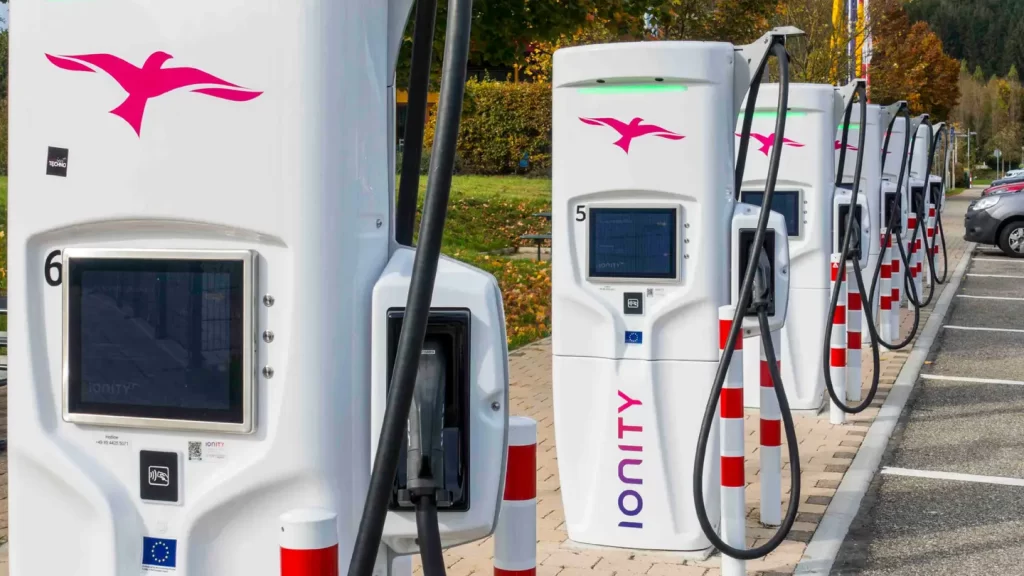Germany, a leader in automotive innovation, is poised to make great advancements in the field of sustainable mobility. Olaf Scholz, the chancellor of Germany, recently unveiled a ground-breaking program at the IAA Mobility exhibition in Munich. Germany wants to be the first nation in Europe to enforce a law requiring fast-charging alternatives for electric cars (EVs) with a minimum output of 150 kilowatts at 80% of all service stations.
Currently, Germany’s proud to showcase some 90k EV chargers accessible publicly. However, to expedite electric vehicle usage and provide convenience for customers along the way, an audacious goal got set on German soil. Their lofty aim? Deploy a whopping one million chargers by the last ring of this decade’s bell! This vigorous blueprint harmonizes quite well with Germany’s extensive dream – that of having fifteen big ones in terms of millions—of EVs traversing its roads come 2030.

The reasoning that fuels this legislative step is plain to see. For a multitude of prospective EV adopters, especially those in sequestered rural areas, the supposed lackance of charging facilities proves quite the obstacle—nearly impenetrable at times—and it’s nigh on obligatory we tackle this issue square in the face if our aim truly lies with inspiring more drivers out there to swap their gas-guzzling rides for eco-better EVs.
It’s worth noting that the United States, with its vast landmass, had over 160,000 chargers by January 2023, emphasizing the need for Germany to catch up in terms of charging infrastructure. Additionally, legal disputes, such as Tesla’s battle with Tank & Rest over charging station rights, have underscored the need for clear regulations in this area.

While the majority of industry stakeholders and consumers welcome this legislative push, not everyone was pleased. Environmental activists from Greenpeace protested at the IAA Mobility show, advocating for more investment in public transit and environmental projects. Chancellor Scholz, however, dismissed their concerns, emphasizing the importance of technologies designed to reduce emissions and protect the environment.
The government’s dedication to creating a vibrant EV ecosystem is demonstrated by Germany’s proposal, which sets an important precedent. If successful, this action might act as a model for other nations looking to hasten the switch to electric mobility. Strong charging infrastructure remains essential to ensuring a sustainable and environmentally friendly future for transportation as EVs continue to gain popularity on a worldwide scale.


